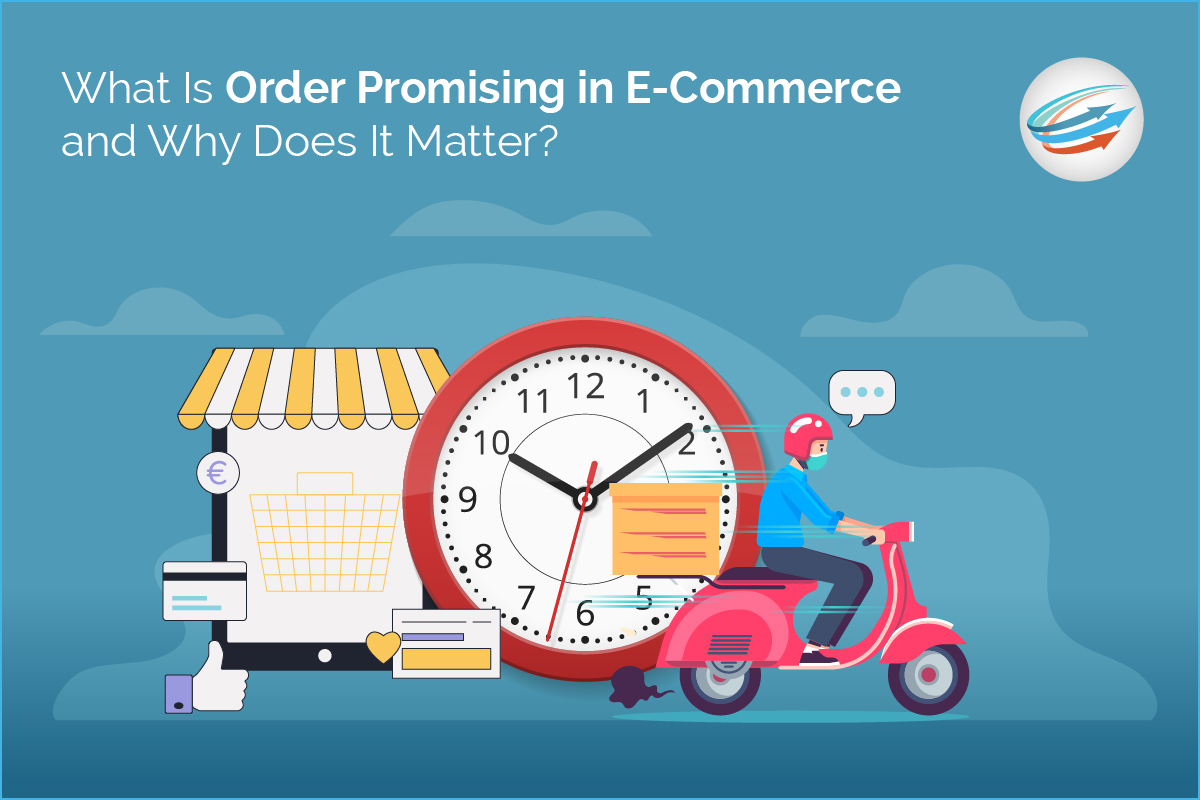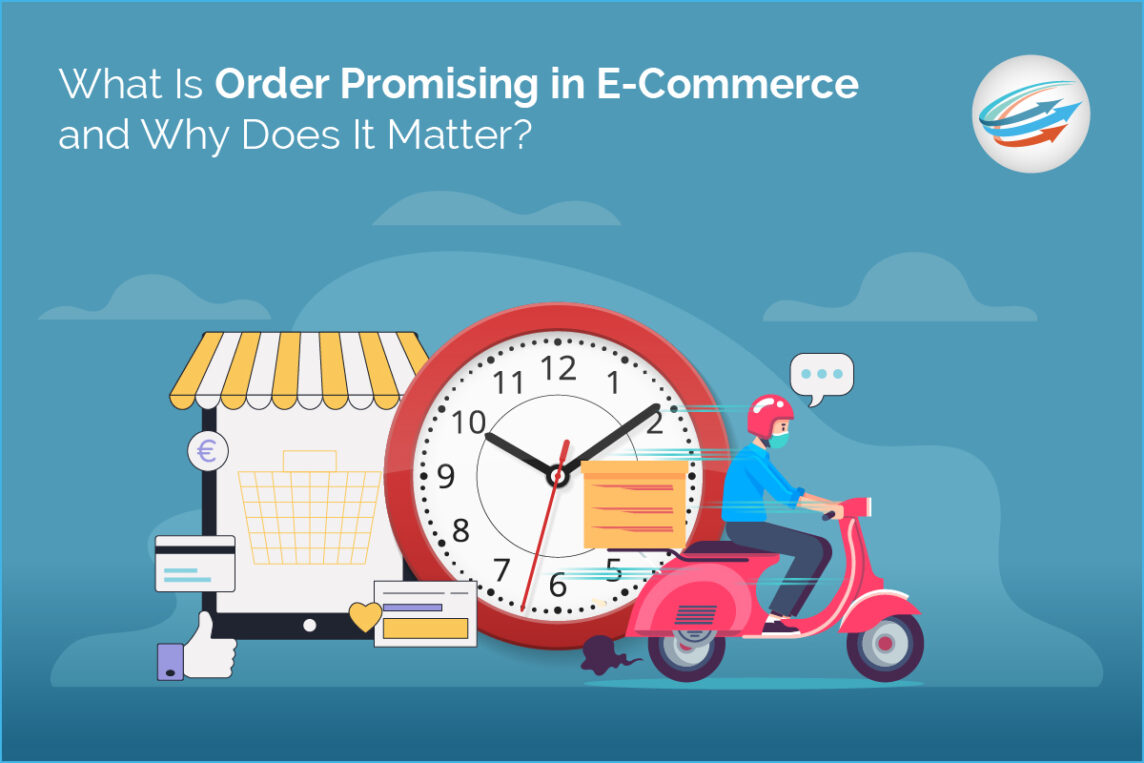
In today’s digital age, customer satisfaction has become the bedrock of successful e-commerce businesses. With the rise of online shopping, consumers have come to expect not only quality products but also seamless delivery experiences. In fact, a staggering 96% of customers report they would shop with a retailer again if they encountered an easy and trustworthy delivery process, according to research by Convey. This is where the concept of order promising takes center stage. By ensuring reliable delivery and building trust, order promising has emerged as a pivotal factor in enhancing customer satisfaction in e-commerce.
What Is Order Promising in E-Commerce?
Order promising in e-commerce refers to the commitment made to customers regarding product availability and delivery timelines. It involves setting clear expectations for when a customer can expect their order to arrive and whether the desired product is in stock. Essentially, it’s the bridge between a customer’s purchase decision and their anticipation of receiving the product.
At its core, order promising serves as a vital component of the overall order management process. It determines how well a business can convey accurate information about stock levels and delivery dates. By aligning these promises with actual capabilities, businesses can avoid disappointments and build stronger relationships with customers.
Imagine placing an order only to receive a notice that the item is out of stock or will take longer to deliver than anticipated. Such experiences can be frustrating, leading to decreased customer satisfaction and potentially losing future sales.
How Does Order Promising Work?
Order promising in e-commerce can be executed through real-time or standard methods. Real-time order promising involves dynamic, real-time order updates based on current inventory, shipping capacities, and processing speeds. It enables businesses to provide up-to-the-minute information to customers, enhancing transparency. In contrast, standard order promising relies on static data, often resulting in less accurate delivery estimates.
Key components of effective order promising include:
- Inventory availability
- Shipping timelines and capacity
- Order processing speed
To achieve accurate order promises, businesses often rely on tech tools such as Warehouse Management Systems (WMS) and Enterprise Resource Planning (ERP) software. These systems real-time inventory tracking and enable seamless coordination between various departments.
In today’s fast-paced world, customers expect real-time updates on their orders, including accurate delivery timelines. A study by Oracle found that 57% of customers demand such updates to stay informed about their purchases. By leveraging technology and maintaining open lines of communication, businesses can enhance the order promising process and ultimately improve customer satisfaction in e-commerce.
Why Is Order Promising Important for E-commerce?
When customers receive their orders on time and as expected, they are more likely to trust the brand and return for future purchases. Conversely, broken promises can lead to dissatisfaction and damage the brand’s reputation.
From a business perspective, accurate order promises can significantly boost conversion rates. When customers know exactly when they will receive their orders, they are more likely to complete the purchase. Uncertainty about delivery dates can deter potential buyers from finalizing their transactions, resulting in lost sales opportunities.
Additionally, precise order promises contribute to reducing cancellations and returns. Mismanaged promises often lead to canceled orders or returned items, which can impact profitability and affect supply chain management. By setting realistic delivery timelines, businesses can optimize their fulfillment operations and avoid bottlenecks.
The Impact of Order Promising on Customer Satisfaction
Transparency and communication are key elements in the order promising process. Customers appreciate upfront and clear communication regarding delivery dates and product availability. Providing accurate information from the get-go helps manage expectations and prevents any unpleasant surprises down the line.
Statistics reveal that 52% of customers have made repeat purchases from e-commerce stores due to positive delivery experiences, according to McKinsey. This underscores the importance of reliable order promising in fostering customer loyalty and driving long-term business success.
Challenges of Order Promising in E-commerce
While order promising offers numerous benefits, it also presents challenges, particularly in the dynamic world of e-commerce. Some of the major challenges include:
- Inventory Fluctuations: Managing promises in the face of fluctuating inventory levels can be difficult. Businesses need to accurately assess available stock to avoid overpromising and disappointing customers.
- Unexpected Delays: Unexpected delays, such as supply chain disruptions or shipping setbacks, can also impact order promises. These unforeseen circumstances can disrupt delivery schedules and lead to missed expectations.
- Scaling During Peak Seasons: Scaling order promising during peak seasons, like Black Friday, can be challenging. Increased demand puts pressure on fulfillment operations, requiring careful planning and coordination to meet customer expectations.
During peak seasons, 66% of customers expect the same or faster delivery speed than usual, according to Shopify. This highlights the need for businesses to be agile and adaptable in their order promising strategies.
Related: How to Manage Seasonal Demand in E-Commerce
Best Practices for Effective Order Promising
To achieve effective order promising, businesses should follow these best practices:
- Accurate Inventory Management: Implementing systems that provide real-time order updates ensures that promises are based on the most current information.
- Set Realistic Expectations: Businesses should avoid the temptation to make overly ambitious promises that may be difficult to fulfill. Instead, focus on setting achievable delivery timelines that align with the business’s capabilities.
- Communicate Delays Proactively: Communication is key in order promising. Proactively notifying customers if delays or changes occur demonstrates transparency and a commitment to customer satisfaction.
- Leverage Technology: Leveraging technology, such as automation and AI, can optimize stock levels and shipping schedules for better promise accuracy. These tools enable businesses to streamline processes and deliver on their promises effectively.
Trust APS Fulfillment, Inc. for Your Supply Chain Management
For e-commerce businesses, implementing best practices such as accurate inventory management, realistic expectations, and proactive communication is essential. By leveraging technology and maintaining transparency, businesses can optimize their order management processes and create positive customer experiences.
If you’re looking to enhance your order fulfillment services, consider reaching out to APS Fulfillment, Inc. Our expertise in e-commerce fulfillment can help you improve your order promising in e-commerce and exceed customer expectations.
Get in touch with us today for a consultation and discover how our services can benefit your business. Call us at (954) 582-7450 or email [email protected].






